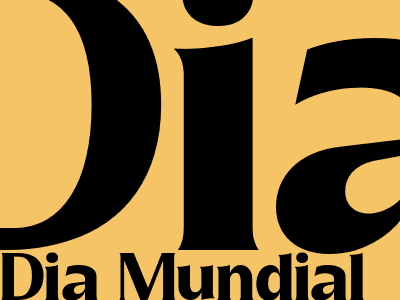Dia Mundial: A Comprehensive Guide
Overview of Dia Mundial
Dia Mundial, meaning "World Day" in Portuguese, is a global initiative that promotes the preservation and celebration of cultural diversity around the world. It was founded in 2003 by UNESCO, the United Nations Educational, Scientific and Cultural Organization, with the aim of bridging cultural gaps and fostering mutual understanding among different nations and communities.
Dia Mundial seeks to achieve this by encouraging cultural exchange through various programs and initiatives. These include organizing cultural festivals, supporting cultural heritage projects, and promoting education about different cultures.
Key Concepts and Principles
Cultural Diversity
Dia Mundial recognizes and celebrates the richness and diversity of cultures around the world. This includes the preservation of traditional practices, languages, arts, and customs that shape the unique identities of different communities.
Promoting cultural diversity helps to foster a sense of belonging, identity, and respect for different ways of life.
Intercultural Dialogue
Dia Mundial promotes intercultural dialogue as a means of building bridges between different cultures. Encouraging open communication, understanding, and empathy among different cultural groups helps to reduce prejudice, stereotypes, and conflict.
Intercultural dialogue creates a platform for cultural exchange and learning, fostering mutual respect and appreciation among people from diverse backgrounds.
Cultural Heritage
Dia Mundial emphasizes the importance of preserving and safeguarding cultural heritage as a valuable asset to humanity. This includes tangible heritage such as historical sites, monuments, and artifacts, as well as intangible heritage such as traditional practices, performing arts, and oral traditions.
Protecting cultural heritage helps to preserve the memory of past generations and ensures the continuity of cultural traditions for future generations.
Events and Initiatives
Dia Mundial is celebrated annually on May 21st with a variety of events and initiatives organized by UNESCO and partner organizations around the world.
- **Cultural festivals:** These festivals showcase the diverse cultures of different regions through performances, exhibitions, and workshops.
- **Educational programs:** Schools and universities organize special programs to raise awareness about cultural diversity and promote intercultural understanding.
- **Community events:** Local communities host gatherings to celebrate local traditions and customs, fostering a sense of community and cultural pride.
These events aim to bring people from different cultural backgrounds together to learn, share, and appreciate the richness of human diversity.
Impact and Significance
Dia Mundial has made a significant contribution to the promotion of cultural diversity and intercultural dialogue around the world.
- **Increased awareness:** It has helped raise awareness about the importance of preserving and celebrating cultural diversity, contributing to a more inclusive and tolerant global society.
- **Reduced prejudice:** By promoting cultural exchange and understanding, Dia Mundial has helped to reduce prejudice and stereotypes among different cultural groups.
- **Strengthened cultural heritage:** It has supported efforts to safeguard and revitalize endangered cultural heritage, ensuring its preservation for future generations.
Dia Mundial continues to play a vital role in promoting cultural understanding, fostering intercultural dialogue, and preserving the world's rich cultural heritage.
Conclusion
Dia Mundial is a global movement that celebrates and promotes cultural diversity around the world. Through various events, initiatives, and programs, it encourages intercultural dialogue, safeguards cultural heritage, and fosters respect and understanding among different cultural groups. Dia Mundial's impact has been significant, contributing to a more inclusive and tolerant global society.

Comments